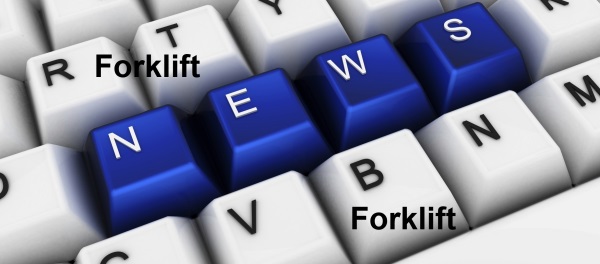Forklift And Training News


iTRUK run a voluntary accreditation scheme in the workplace transport industry
The article below is by Dave Sparrrow, CEO of iTRUK. Their accreditation scheme is an attempt to bring forklift operator training and testing into the 21st century.
Who are we?
A voluntary accreditation scheme in the workplace transport training industry.
What do we stand for?
Better training standards at a lower cost to employers of operators and instructors.
We are different to the majority of accreditation bodies because we care.
Some accrediting bodies are members of a group called the Accrediting Bodies Association (ABA). They have recently updated and published new tests for operators of the most popular types of truck. We look forward to viewing the updated tests for all truck models. We realise that this will be a huge task for them and we offer our assistance if required because we firmly believe in measuring competence by test or examination, not by duration of training.
Lift truck operator and instructor training standards were initiated in 1969 under the 1964 Industrial Training Act. In those days the duration of training was set by the Ministry of Labour as a maximum of 5 days for novice operators for conventional lift trucks (Reach or Counterbalance) and a maximum of 10 days for lift truck instructors. Industrial Training Boards ensured that their customers could claim the maximum available grant and designed courses to fit the 5 and 10 days.
These standards were statutory until 1979 when Industrial Training Boards were ended by the government of the day. Since then they have been voluntary and our competitors have chosen to stick with the original training methods, in spite of the fact that the majority of operators switch from using the training method of load handling to using the manufacturer’s method as described in their handbooks without any conversion training and almost before the ink is dry on their basic training certificates. That cannot be right can it?
We know that industry has moved on a pace since the 60’s. Lift trucks have improved almost beyond recognition to some of the awful machines back then. Training methods have also improved as have working environments for lift truck operators, largely due to the Health & Safety at Work etc. Act of 1974. We think it is high time the training industry moved forward. Standards should be dictated by achievement, not by duration.
The standard should reflect an operator’s ability to work safely and effectively in a normal lift truck working environment and instructors should be trained to instruct novice operators to achieve that standard. This does not mean by cutting corners. We do not suggest cutting the duration of operator training from five days to two but we recognise that some operators can achieve the standard in a shorter time. The same applies to instructor training and we want to learn from them because any saving to an employer in time and travel costs is an ultimate benefit to this industry. We could train instructors on a shorter course by reducing the tutor/trainee ratio and reducing the standing around time. In this way we can produce good instructors in less time, a huge saving for employers in lower fees and reduced travel expenses.
Our standards are examination are test driven and both our theory and practical tests are very similar to those used by other accrediting bodies.
Our members are encouraged to discuss new ways to reduce costs to their customers without compromising standards. If you are in the industry and this has interested you and if you feel that you have a contribution to make, email me, Dave Sparrow at:dave@itruk.co.uk and I will contact you.
Webmaster's note: Having been involved with forklift truck since the early days of training I have to concur with much of what iTRUK is trying to achieve. If you want a complete chronological history of training in the UK please click on this link which will open in a new window. You can also read much more about iTRUK here.